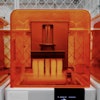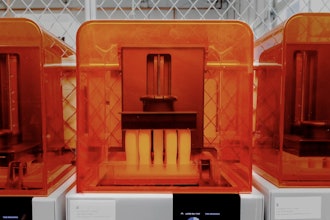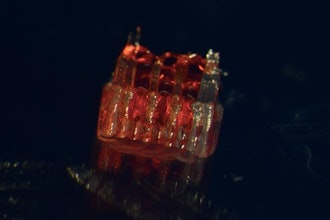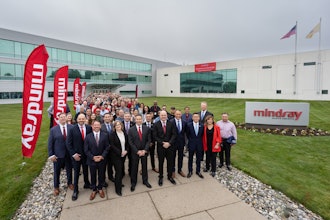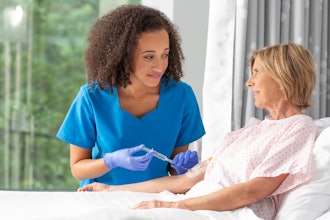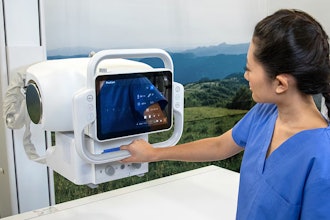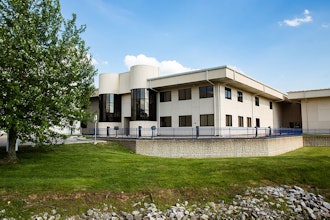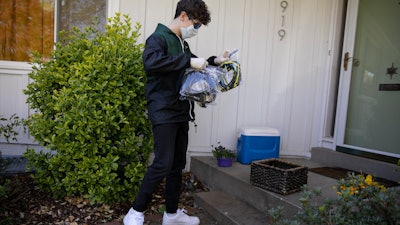
WASHINGTON (AP) — It started in late March with a self-professed high school “news junkie” and a lone 3D printer.
Georgetown Day School senior Jonah Docter-Loeb was transfixed by television footage of the “suffering on such a large scale” caused by the coronavirus pandemic.
After learning that supplies of protective medical gear were being depleted, Docter-Loeb sought a way to help. He tapped into the online community of “makers” — 3D printer enthusiasts — and found an open-source design for a welder's mask-style face shield he could print at home.
Things moved quickly from there.
In less than a month, that idea has mushroomed into Print to Protect, a network of around 100 3D printers, most in individual homes, producing face shields for distribution to Washington area hospitals. The group says it has printed 3,000 shields so far with a goal of completing 10,000 in April.
“For a lot of us, it can be overwhelming what's happening,” said Emily Scarrow, a junior at the private school and part of a collective of students running the project. She said working on the campaign helped her deal with the feelings of “helplessness and isolation" of the ongoing stay-at-home orders.
The supplies are much needed as Washington and the larger capital region of southern Maryland and northern Virginia braces for a looming surge.
Twice a week, volunteer drivers such as William Olsen gather up the printed materials from people's homes. To maintain social distancing and reduce personal interactions, residents leave the newly printed parts in a sealed bag or box on their porches.
“I have a car and I have a bunch of free time. I'm privileged and this is the least I can do,” said Olsen, a Georgetown Day junior who is thinking of studying medicine.
The parts are delivered to Eaton DC, a communal workspace downtown that's serving as a distribution hub. There, more volunteers assemble the two basic components — a plastic headband and a clear sheet of flexible plastic that hangs in front of the face.
The Print to Protect campaign is just part of a larger effort working in independent pockets among the area's “maker” community.
When Rob Ryan-Silva's employer, U.S. Agency for International Development contractor DAI, sent everyone home, he carried out a pair of 3D printers.
“A little to my wife's chagrin, they're in our guest bedroom and I'm running a little factory out of there,” he said.
One of them is the standard home-style printer “about the size of a microwave on its side” that he uses to print face shields. The other is a larger and most sophisticated machine that he's used to fill a specific request from Washington's fire department: a special nozzle that would enable ambulance crews to swap filters on the breathing-aid machine in the their ambulances.
The items he produces are collected and distributed by a similar maker-collective organized by Nova Labs in Reston, Virginia. The face shields take about four hours each to print. He estimates he's made 50 face shields and 80 nozzles.
“It really does add up when you have a larger community doing this,” he said.



